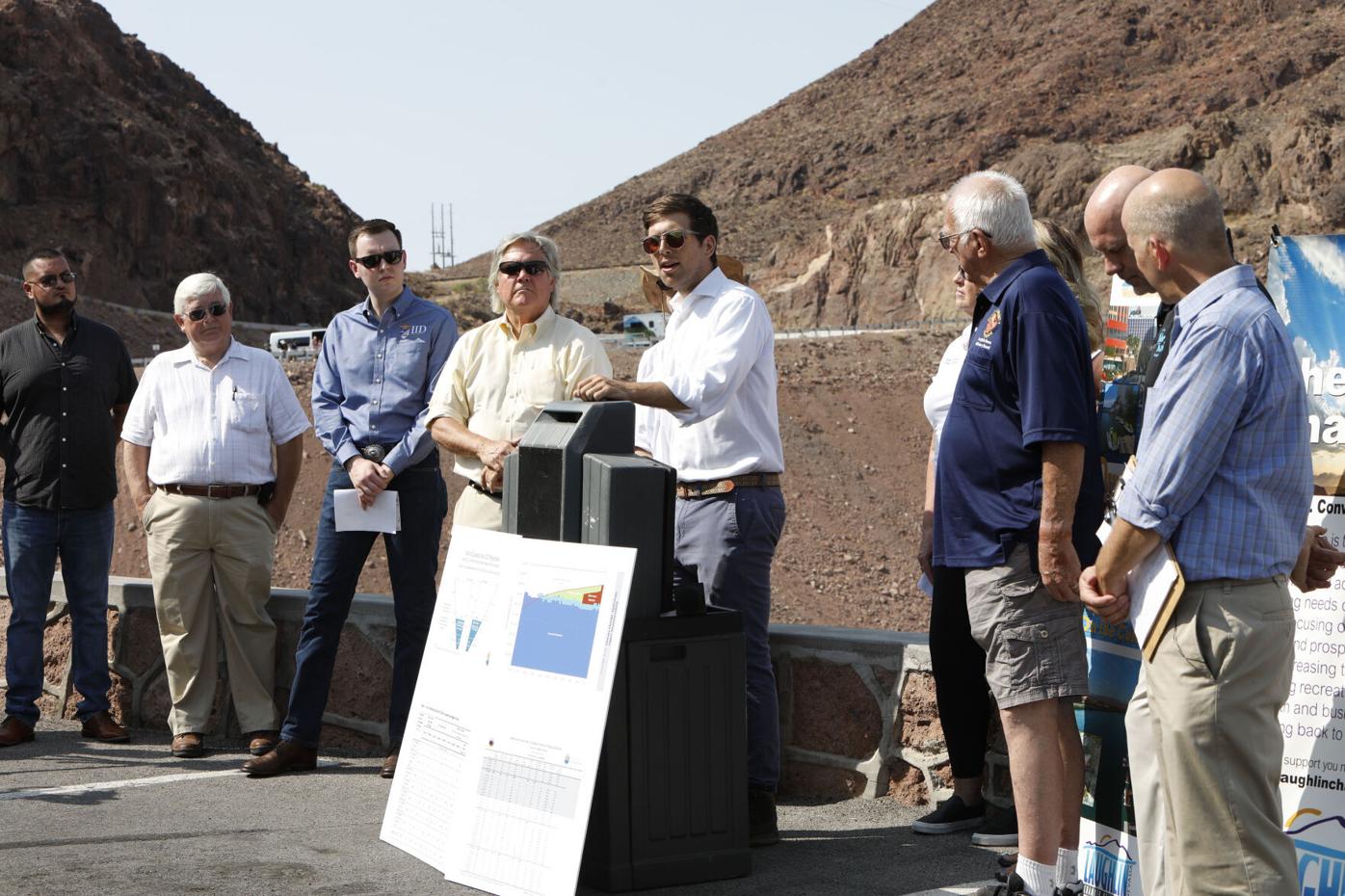Arizona, Nevada to see Colorado River cuts under federal plan; California unscathed
Update 4
Tanya Trujillo, assistant secretary for water and science at Interior, added in both the lower and upper basins, the Bureau of Reclamation will look at physical modifications to Hoover and Glen Canyon dams to see if there is a way to allow water to be released below either critically low levels at Glen Canyon or “deadpool” levels at Hoover.
Trujillo said “we simply have no choice” but to protect the system.
Update 3
Today’s actions include reducing releases from Glen Canyon to the lower basin states by 480,000 acre-feet, reducing their immediate allocation from 7.5 million acre-feet to 7 million. That will improve Lake Powell’s elevation by about 15 feet, according to Dan Bunk the Boulder Canyon chief of operations.
The cutbacks are falling on most of the lower basin states save for California, which was spared any reductions. Arizona will lose 592,000 acre-feet of water in 2023; Nevada will lose 25,000 acre-feet; Mexico will reduce by 104,000 acre-feet, for a total of 721,000 acre-feet, Bunk said.
Update 2
Bureau of Reclamation Commissioner Camille Touton announced the agency’s strategy. Conditions and risk have not changed in the last 63 days since her announcement, she said. The basin, in its 23rd year of historic drought, and with Lake Powell and Lake Mead at historic lows, means the system is approaching a tipping point, Touton said.
Protecting the system means protecting the people of the American West.
Reclamation released its 24-month study on the Colorado River today, and sets annual operations for Powell and Mead in 2023. Downstream releases from the Glen Canyon and Hoover dams will be reduced, she said. Based on projections today, Lake Mead will be on its first second tier shortage condition in 2023, she said. Under existing agreements, Arizona will lose 80,000 acre-feet and Nevada 4,000 acre-feet of water, for starts.
To date, the states collectively have not identified nor adopted measures to stabilize the system, so the agency will pursue actions to further manage elevations in the reservoirs, she said.
She said the agency is ready to work with the Upper Colorado river Commission on its five-points plan, and with California on a sustainable path forward for the Salton Sea and with the other lower basin states to protect volumes.
“We have the resources to bring to these partnerships,” Touton said, pointing to the recent legislation signed by President Biden.
Update 1
The prolonged drought afflicting the West is one of the most significant challenges facing the country. Almost 93% of the western US is experiencing drought or abnormally dry conditions, according to Deputy Secretary Tommy Beaudreau of the Department of Interior. Extreme drought conditions disrupt entire ecosystems, he added. The Interior Department is coordinating with partners across federal, state and tribes to conserve water.
Beaudreau touted the “historic investments” in the last several months, including through the bipartisan infrastructure bill, some $8.3 billion to Bureau of Reclamation’s water infrastructure programs. The Inflation Reduction Act, which President Biden is signing today, includes $4 billion for conservation efforts in the Colorado River basin and other areas experiencing drought,” Beaudreau said.
The department will use every resource possible to protect the Colorado River system, he said.
Pre-news conference
The U.S. Department of the Interior indicated it would spell out water conservation plans of its own after the seven states that rely on the Colorado River failed to cooperate and propose a plan to cut up to 4 million acre-feet of water.
Senior officials are expected to outline steps to improve the long-term sustainability of the Colorado River System, including ongoing engagement with affected states and tribes. The federal agency also plans to release a 24-month study on operating conditions for Lake Powell and Lake Mead for the upcoming year.
In June, Commissioner of Reclamation Camille Touton told the U.S. Senate Natural Resources Committee the seven states in the Colorado River basin must come up with a plan within 60 days on how to conserve 2 to 4 million acre-feet of water in the coming year. She said if the states failed to do so, the federal government would “act unilaterally to protect the system” under its existing authority.
Follow us for live updates here!





